ISU Speech and Language Clinic, Pocatello
CONTACT US:
Phone: (208) 282-3495
Fax: (833) 390-1293
Address:
650 Memorial Dr., Bldg. 68
Pocatello, ID 83209
Directions:
HOURS:
Monday - Thursday
8:00 AM - 5:00 PM
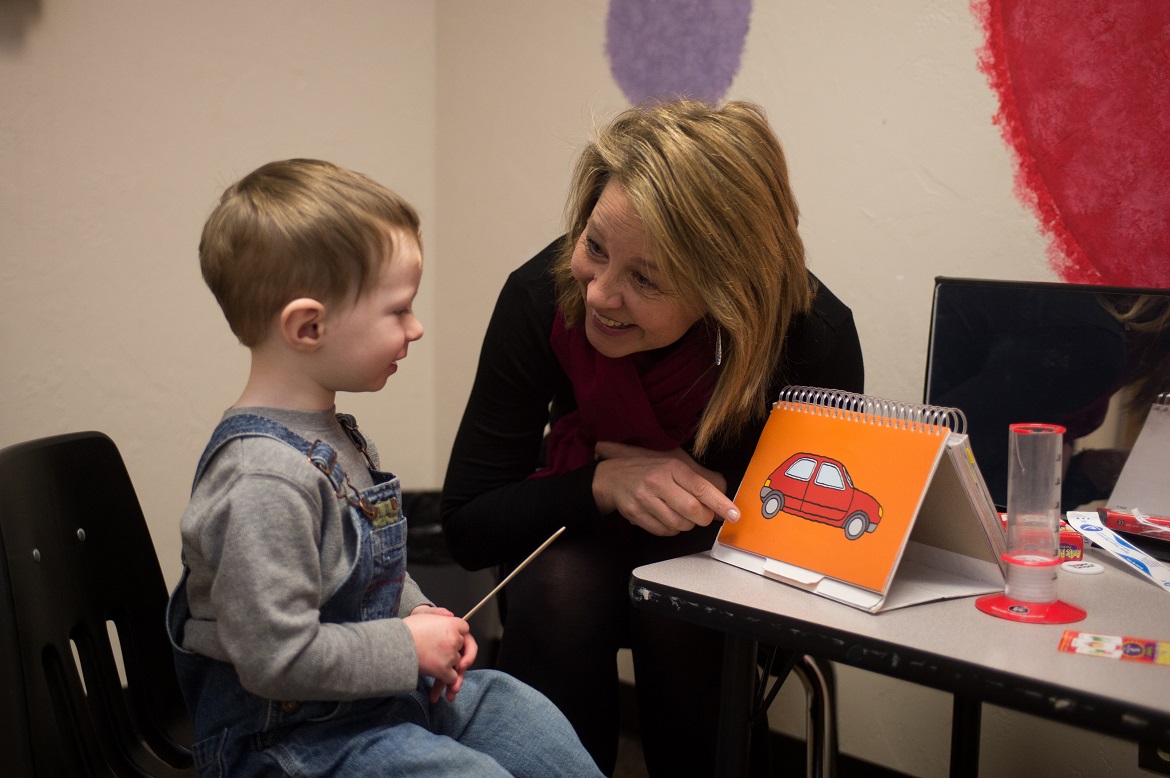
ISU's Speech and Language Clinic offers evaluation and treatment of children and adults in the following areas: Articulation, Receptive and Expressive Language, Voice, Fluency/Stuttering, Alternative and Augmentative Communication (AAC), Pragmatic (social skills), and Accent Reduction Communication difficulties following stroke or traumatic brain injuries.
Idaho State University recognizes that our mission is to care, support, and educate individuals and families affected by health conditions that diminish their quality of life. We acknowledge that individuals may experience discrimination in the healthcare system, which can adversely affect their health outcomes. We recognize that both conscious and unconscious discrimination occur. Overt and conscious discrimination is not tolerated. Unconscious or unintentional discrimination need to be identified, challenged, and addressed. We believe everyone has the right to be healthy and have access to the resources they need.
We strive to achieve the following commitments to our colleagues and our patients:
- Goal 1: We do not discriminate on the basis of age, race, ethnicity, religion, culture, language, physical or mental disability, socioeconomic status, sex, sexual orientation and gender identity or expression.
- Goal 2: All patients receive the highest level of care possible delivered in a patient and family friendly approach using evidence-based medicine.
- Goal 3: We recognize racism, not race, as the cause for healthcare disparities and therefore will examine our healthcare treatment plans for bias.
- Goal 4: We will track information on factors that create disparities as they relate to health outcomes to better identify how we may actively seek to eliminate such disparities in healthcare.
- Goal 5: We intend to improve the diversity of our workforce to reflect the community we serve.
- Goal 6: We commit to listen, learn, and seek to understand in order to create impactful and sustainable positive change.
- Goal 7: We will recognize and reward practices that promote health equity.
Definition of health equity: The state in which everyone has a fair and just opportunity to attain their highest level of health. https://www.cdc.gov/
While the terms equity and equality may sound similar, the implementation of one versus the other can lead to dramatically different outcomes for marginalized people: Equality means each individual or group of people is given the same resources or opportunities. Equity
Services
Services are performed by graduate student clinicians and supervised by SLP certified and licensed clinical faculty. Our program is a semester based program offering services from September through December and January through May, and specialty clinical programs in the summer months (traditional national holidays are observed).
Speech and Language Services
Services provided for adults include evaluation and treatment of:
Aphasia
Aphasia is a language disorder resulting from an injury to the brain, most often in the left hemisphere that affects all language modalities. Aphasia is not a single disorder, but instead is a family of disorders that involve varying degrees of impairment in four primary areas:
- spoken language expression
- spoken language comprehension,
- written expression, and
- reading comprehension.
A person with aphasia often has relatively intact memory and executive function skills, although these and other cognitive deficits may co-occur with aphasia. Sensory deficits such as auditory and visual field deficits may also be present.
Signs & Symptoms may include:
- Difficulty finding words
- Speaking in single words
- Omitting smaller words like “the”, “of”, and “was”
- Putting words in the wrong order
- Making up words
- Difficulty understanding others
- Lacking awareness of others
- Difficulty comprehending written material
- Difficulty writing or copying letters, words, and sentence
Dementia
Dementia is a syndrome resulting from acquired brain disease and characterized by progressive deterioration in memory and other cognitive domains (e.g., language, judgment, abstract thinking, and executive functioning). The cognitive decline associated with dementia affects an individual's ability to comprehend and produce linguistic information. Additionally, behavioral problems that develop as a result of the neuropathology (e.g., paranoia, hallucinations, and repetitiousness) may interfere with communication.
Signs & Symptoms may include:
- Easily distracted
- Episodic memory deficits
- Difficulty multi-tasking and handling complex tasks
- Inability to recognize familiar people
- Difficulty recalling names of family and friends
- Inappropriate behavior
Dysphagia
Dysphagia is a swallowing dysfunction where it takes more time and effort to move food or liquid from your mouth to your stomach. Dysphagia may also be associated with pain. In some cases, swallowing may be impossible.
Occasional difficulty swallowing, which may occur when you eat too fast or don't chew your food well enough, usually isn't cause for concern. But persistent dysphagia may indicate a serious medical condition requiring treatment.
Dysphagia can occur at any age, but it's more common in older adults. The causes of swallowing problems vary, and treatment depends on the cause.
Signs & Symptoms may include:
- Difficulty swallowing
- Pain during swallowing
- Drooling
- Unable to swallow
- Being hoarse
- Feels like food is stuck in your throat
- Regurgitation
Traumatic Brain Injury
Traumatic brain injury (TBI) is a form of brain injury caused by sudden damage to the brain. The effects can range from physical, sensory, cognitive-communication, swallowing and behavioral issues. These problems significantly impair the effected person's ability to live independently. The problems vary depending on how widespread the brain damage is and the location of the injury.
Signs & Symptoms may include:
- Difficulty thinking and understanding
- Aggression, impulsivity, and lack of restraint
- Dizziness, fainting, or fatigue
- Anger, anxiety, or apathy
- Nausea or vomiting
- Slurred speech or impaired voice
- Blurred vision or sensitivity to light
- Headache, seizure, or ringing in the ears
Voice Disorders
A voice disorder is an abnormal pitch, loudness, or vocal quality resulting from disordered laryngeal function and may cause pain or vocal fatigue. Voice disorders range from mild hoarseness to complete voice loss, and limit the effectiveness of oral communication.
- Hoarseness
- Chronic cough or excessive throat clearing
- Vocal strain or fatigue
- Loss of voice
- Reduced pitch range
Voice disorders can be caused by an injury resulting in paralysis of a vocal fold, an improper breathing pattern, or misuse of the voice. Voice disorders can also be due to medical/physical conditions or neurological in nature. The individual with a voice disorder may experience stress, withdrawal, and depression because of an inability to produce normal voice.
Signs & Symptoms can include:
- Hoarseness
- Chronic cough or excessive throat clearing
- Vocal strain or fatigue
- Loss of voice
- Reduced pitch range
Services provided for children include evaluation and treatment of:
Articulation
An articulation disorder is the production of speech sounds spoken with substitutions, omissions, additions or distortions that may interfere with intelligibility.
- Certain sounds are not produced but omitted or deleted (e.g., “cu” for “cup” and “poon” for “spoon”)
- One or more sounds are substituted (e.g., “dood” for “good” and “wabbit” for “rabbit”)
- One or more extra sounds are added or inserted into a word (e.g., “buhlack” for “black”
- A syllable is repeated or deleted (e.g., “dada” for “dad” or “wawa” for “water”
Stuttering
Stuttering affects the fluency of speech. It begins during childhood and, in some cases, lasts throughout life. The disorder is characterized by disruptions in the production of speech sounds (disfluencies). Most people produce brief disfluencies from time to time. For instance, some words are repeated and others are preceded by "um" or "uh." Disfluencies are not necessarily a problem; however, they can impede communication when a person produces too many of them.
Signs & Symptoms:
- Difficulty starting a word, sentence, or phrase
- Prolonging a word or sounds within a word
- Repetition of a sound, syllable or word
- Brief silence or pauses within a word
Receptive Language Disorder
This language disorder affects a child’s ability to understand what is being said to them. This usually is seen in children prior to age four. In most cases, children with receptive delays also have expressive language disorder. Children must be able to understand the spoken language in order to properly speak.
Signs & Symptoms can include:
- May not listen when being spoken to
- Inability to follow verbal instructions
- Inability to understand complicated sentences
- Language deficits
- Repeating words that are said to them (echolalia)
Expressive Language Disorder
This language disorder affects a child’s ability to formulate words, speak in complex sentences, and remember words. Most often, the child does understand verbal communication.
Signs & Symptoms can include:
- Limited vocabulary skills
- Improper use of tenses (past, present, future)
- Unable to speak in sentences
Apraxia
Childhood apraxia of speech (CAS) is a motor speech disorder. Children with CAS have problems saying sounds, syllables, and words. The brain has problems planning to move the body parts (e.g., lips, jaw, tongue) needed for speech. The child knows what he or she wants to say, but his/her brain has difficulty coordinating the muscle movements necessary to say those words.
Signs & Symptoms can include:
- Does not coo or babble as an infant
- Problems combining sounds
- Understands language but doesn’t talk
- Difficulty imitating speech
- Is hard to understand
Tongue Thrust
A tongue thrust occurs when the tongue pushes against the front teeth or protrudes through the teeth during swallowing and/orspeech, or while the tongue is at rest. It is commonly referred to as a reverse swallow and is normal during infancy and toddler stages, but should disappear by the time a child starts elementary school.
Signs & Symptoms can include:
- Articulation errors can include /s, z, t, d, n, l, sh/
- Orthodontic issues
- Mouth breather
- Messy eater
- Tongue visible during speech and/or swallowing
ISU Speech and Language is proud to be certified as a RiteCare Facility. The Scottish Rite Foundation (SRF) of Idaho works in partnership with ISU to provide speech-language services for children at ISU’s Speech and Language clinics. SRF financial scholarships are available to supplement therapy fees. For more information about the scholarship program, please contact our billing office 208-373-1743.
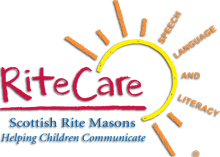
RiteCare Scottish Rite Childhood Language Program (SRCLP)
Augmentative and Alternative Communication (AAC)
AAC includes all forms of non-verbal communication that is used to express thoughts, needs, wants, and ideas. AAC includes facial expressions, body gestures, use of symbols or pictures as well as the written word. Many people with severe language deficits rely on AAC to communicate their needs. The following options are examples of AAC communication:
- Unaided Communication: Relies on the individual’s body to perform gestures, body language, and/or sign language.
- Aided Communication: Relies on additional tools to aid in communication such as paper and pencil, communication boards, and electronic speech devices that produce voice output.
Pediatric Feeding and Swallowing Clinic
The ISU Pediatric Feeding and Swallowing Clinic provides diagnostic, treatment, and consultation services for families with children who are experiencing difficulties in feeding, including:
- Difficulty sucking
- Swallowing
- Chewing
- Children who do not feed themselves at appropriate ages
- Transition from nasogastric or gastrostomy feedings to oral feedings
- Neurological impairments
- Development delays that hinder oral feedings, abnormalities of the mouth and throat that affect eating, difficult transitions from breast-feeding to cup/bottle or pureed foods and behavioral feeding issues.
Early Literacy Program (8 Week Program)
The Early Literacy summer program is an interactive group for children entering Kindergarten (ages 4 to 6). The program provides a structured environment that fosters early reading skills such as: beginning sound identification, rhyming and syllables, vocabulary enrichment, alphabet recognition, name writing, and concepts of print. Parents will learn how to facilitate the development of literacy skills during storybook reading time. Parents also participate in shared reading parent education sessions with their child directly before/after the interactive group time once weekly.
Program Coordinator:
- Robin Falslev
(208) 282-3809
amenrob2@health.isu.edu
Program Dates:
Two days per week during June and July.
Make an Appointment
Patients are pre-screened and put on a waitlist for services. If you want to be considered for services or need to cancel an existing appointment, please call (208) 282-3495:
- Clinic Hours: Monday - Thursday, 8:00 AM - 5:00 PM
Consent Forms
Consent forms are traditionally sent via DocuSign to your email account. If you are unable to sign consent forms electronically, paper copies are also available for your covenience. Please print and return with you on the day of your appointment.
- Adult Consent Forms
- Pediatric Consent Forms
- Scottish Rite Scholarship Application (Pediatric)
- Notice of Privacy Practices
Parking
Patients can park in the areas designated “Clinic Patient Parking” or anywhere else in the reserved parking lot next to Bldg. 68. Parking passes are generally sent to the patient prior to visits, but can also be obtained from the staff at the clinic entrance.
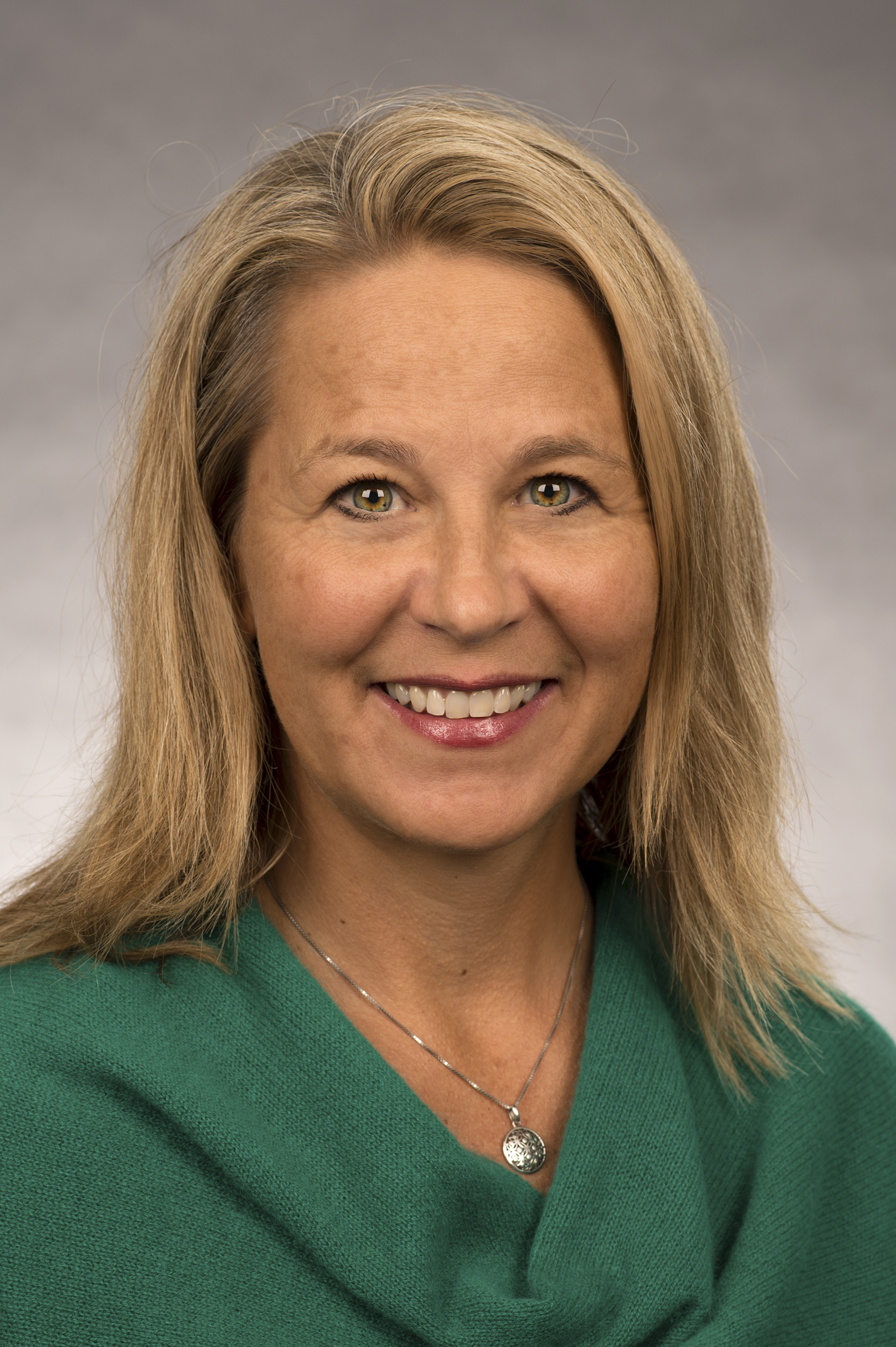
Wendy Morgan, MS CCC-SLP
Clinic Coordinator & Clinical Associate Professor
(833) 390-1293

Robin Falslev, MA CCC-SLP
Clinical Associate Professor
(833) 390-1293
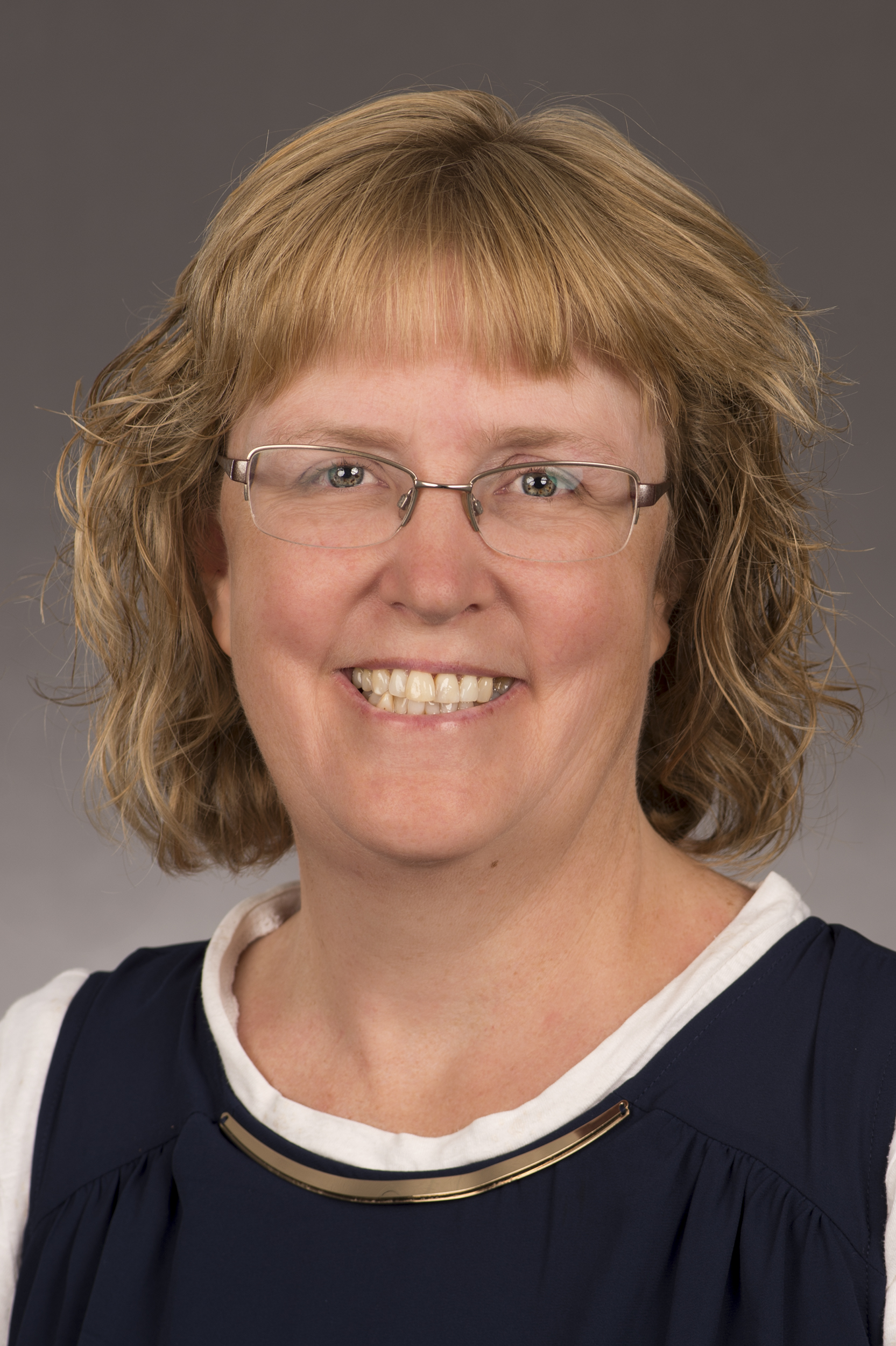
Connie Miller, MS CCC-SLP
Clinical Assistant Professor
(833) 390-1293
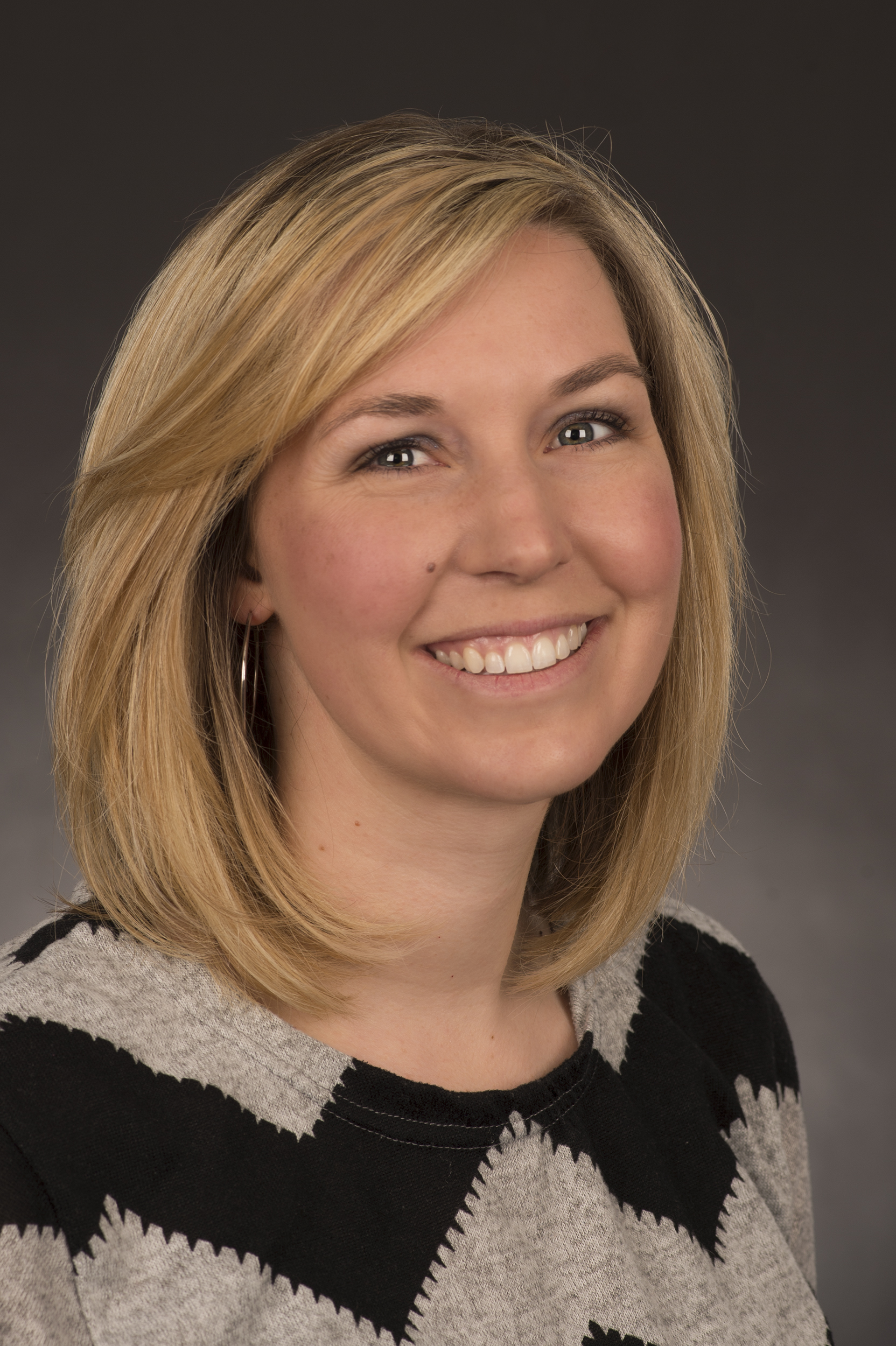
Karissa Miller, MS CCC-SLP
Clinical Assistant Professor
(833) 390-1293
Staff
- Becca Rasmussen
Patient Care Coordinator
(208) 282-3495
beccarasmussen@health.isu.edu
Billing
- Clinic Fees: The ISU Speech and Language Clinic is a semester based program and charges a flat semester fee. Scholarships funded by the Scottish Rite Foundation are available for pediatric patients. Please contact the billing office at 208-373-1743 for more information about our fees.
Payment
- Semester Billing: Payment for the semester is due the first day of clinic. Payment arrangements can be negotiated based on individual needs. We accept cash, checks, debit/credit cards and online payments at the link below.
Donations
- Our program supports our adult community members who are underserved or have exceeded their therapy benefits. To help offset our costs, we have set up the "Communicate Clearly Fund". This scholarship fund will help adults with limited resources. If you would like to donate to the scholarship fund, give here:
No Surprise Act
Masters of Speech Language Pathology Program
The Masters of Science degree in Speech Language Pathology at Idaho State University is the only accredited program in the state of Idaho. Dedicated to enriching the lives of those with communication needs, the program has a strong clinical focus which provides graduating students with the tools to work in educational, medical, or other clinical settings with children and/or adults with communicative needs.
American Speech-Language-Hearing Association (ASHA): ASHA is the national professional, scientific, and credentialing association for more than 173,070 members and affiliates who are audiologists; speech-language pathologists; speech, language, and hearing scientists; audiology and speech-language pathology support personnel; and students. Audiologists specialize in preventing and assessing hearing and balance disorders, as well as providing audiological treatment, including hearing aids. Speech-language pathologists identify, assess, and treat speech, language, cognition, voice, and swallowing disorders.

